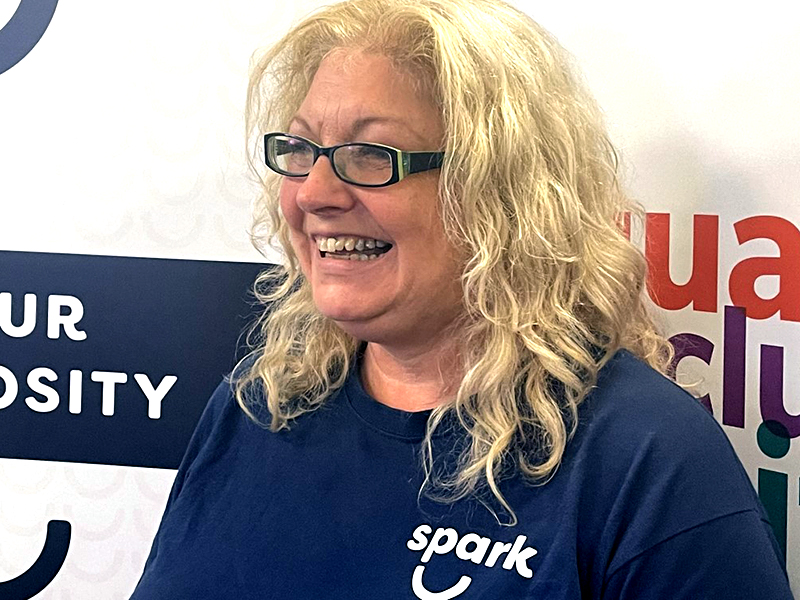Digital inclusion might sound bland, but those two words carry a lot of weight
To many people the words ‘digital inclusion’ can sound like the sort of meaningless, jargon-laden phrase guaranteed to divert their attention on to something more interesting.
It carries the twin disadvantages of being both vague – in the modern world everything is now digital – and patronising.
The biggest disappointment with seeing this kind of language repeatedly peddled is the sense of lost opportunity because, within it, is concealed one of the biggest social challenges of our time.
Its blandness belies the reality that technology has massively increased the gap between the haves and the have nots in our society.
Being denied entry to the online world can mean the difference between being employed or unemployed, being able to access support services, book medical and social care appointments and have your voice heard within your community.
At a human level, it can free you from the pain and misery of social isolation and loneliness and allow you to keep in touch with friends and relatives from whom you are separated by physical distance.
Lack of connectivity only exacerbates the sense of disadvantage and unfairness experienced by people who already feel different from, or discriminated by, the rest of society through age, disability, sexual orientation, ethnicity, or education.
The reasons why people can’t access the Internet can be varied and pernicious. They may not have the funds to pay for a mobile phone, tablet, laptop or PC as well as the monthly broadband and data charges.
Even if they can, they may not have the know-how or skills needed to navigate the web, find the sites they need to be able to access support services. or to fill in often complex forms remotely.
It’s not just access to administrative services that people are denied, they are also missing out on all the fun activities that the web can provide, including music, films and TV shows as well as human connectivity through social media.
When you put everything into context like that, somehow the phrase ‘digital inclusion’ doesn’t really do it justice.
Last month, it was reported that a mentally ill woman was discovered in a ‘mummified, almost skeletal state’, after lying dead for more than three years in her flat. Laura Winham, who had schizophrenia, had become estranged from her family.
While none of the reports mentioned whether she had access to the internet, or whether that would have made any difference to the outcome of her death, there is a clear link between these sorts of tragic endings and social class and between social class and access to the internet.
Researchers at Edinburgh Napier University People found that people in the most deprived areas of Scotland are more likely to die alone at home, according to research that reveals the significant impact of health inequalities on end-of-life care.
A study published by Age UK in 2021 suggested that Covid had done little to change older people’s use of digital technology, despite a drift towards services and activities being online.
Calling for greater support for those who are offline and finding it increasingly difficult to access essential goods and services, the charity revealed that less than a quarter of over-75s increased their internet usage as a result of the pandemic, mainly driven by existing users going online more often.
Age UK warned that the rapid pace of change was leaving significant numbers of older people behind and this is one of the reasons why we, at Spark, take the issue so seriously.
Last month, we teamed up with local employer Sky, to launch a new Sky Up digital hub at our base in Craigshill, Livingston, that will be used to equip members of the community with digital and employability skills.
The branded hub includes a newly refurbished digital suite, with five workstations equipped with laptops and iPads, editing equipment and wifi and a break-out, café area with a Sky Glass TV and package and coffee machine.
The collaboration is planned to improve employability in the area by delivering core skills, particularly to under 25s and over 50s.
As well as equipping more older people to use online services, we also plan to offer young people a six-month placement, where they will learn additional digital and employability skills, and which will be exciting and popular.
We know that the best approach to helping excluded groups gain confidence and improve their IT skills, is best done through ongoing support, tailored to their needs and preferences.
Being able to contact friends and family on Facetime can make a big difference to the quality of an older person’s life, but it doesn’t automatically mean they will then go on to deal with their finances or access health and social support services in that way.
Giving someone a limited amount of online activity doesn’t mean they will have the skills to use the internet to meet all their needs.
Equipping people unfamiliar with the online world to feel safe and confident requires time, support and patience.
More investment in digital skills training and IT hardware is needed across Scotland to support people who are digitally excluded to get online safely and improve their skills.
Without it, many people will simply be left behind, with some struggling to access services that the rest of us take for granted.
Alex Fleming is chief officer of Livingston-based Spark, a social enterprise that provides a range of work and social based services to the local community.







